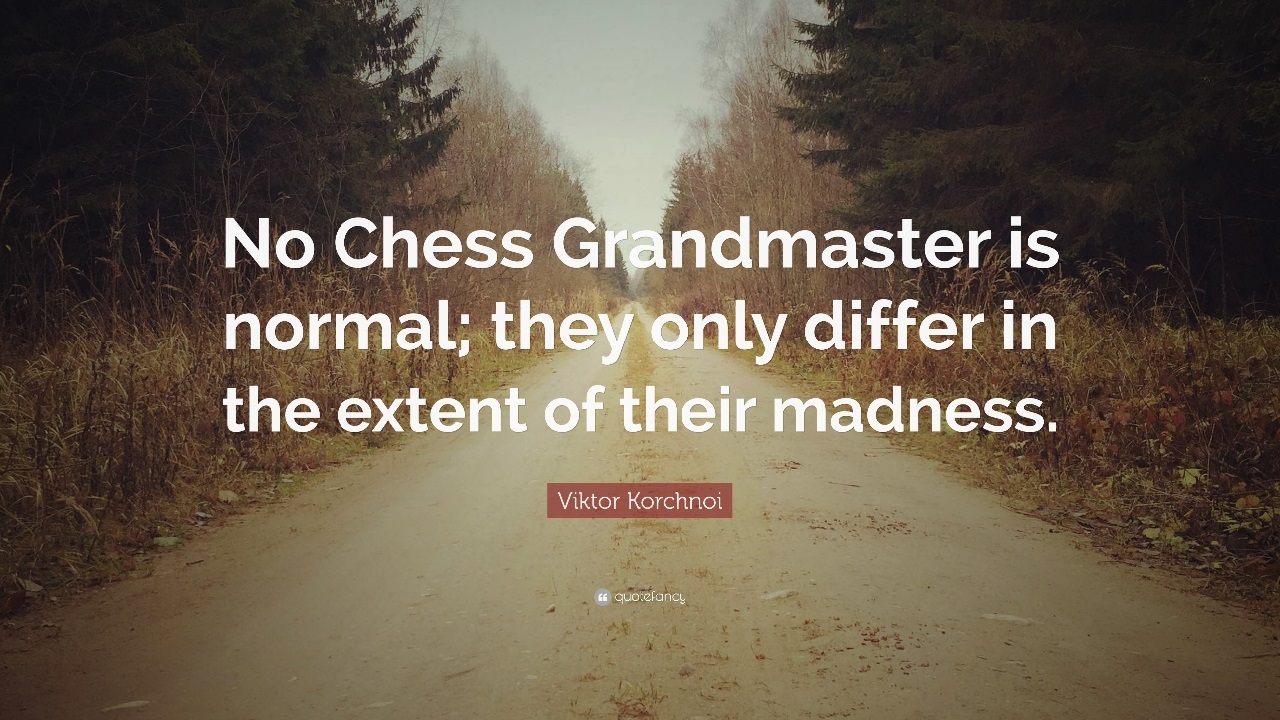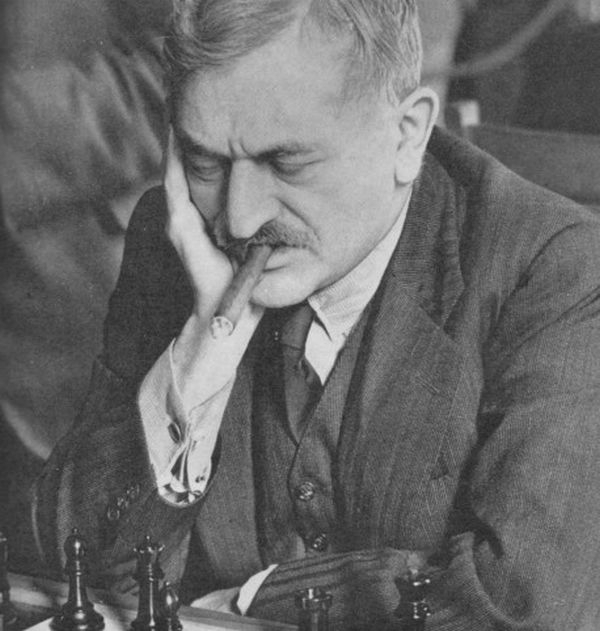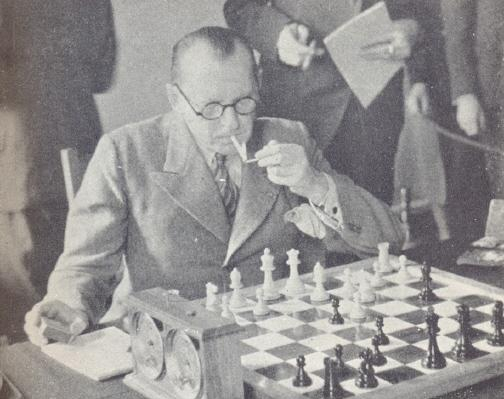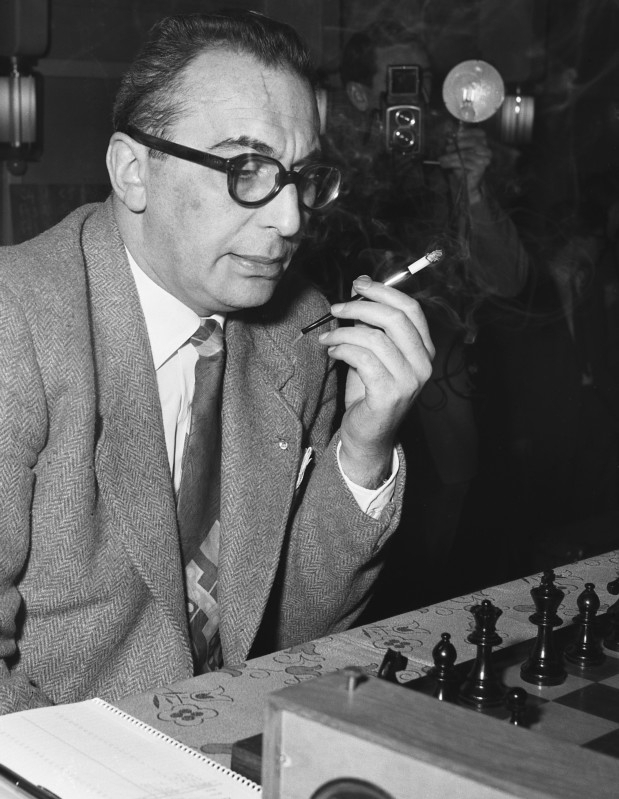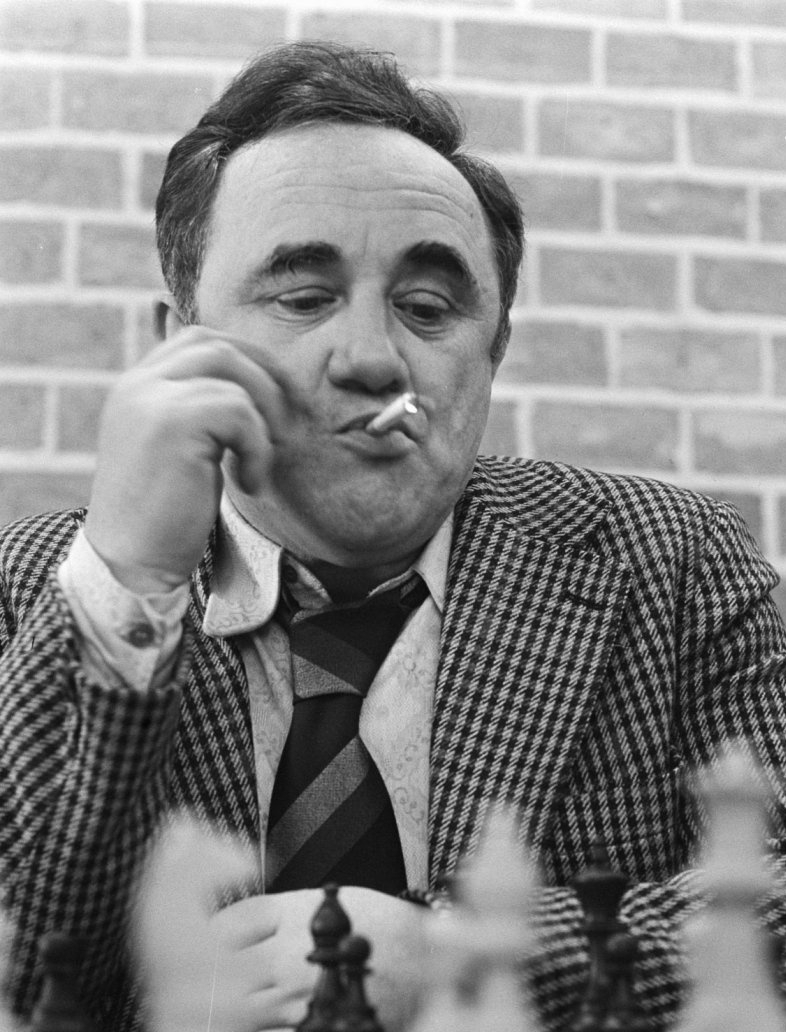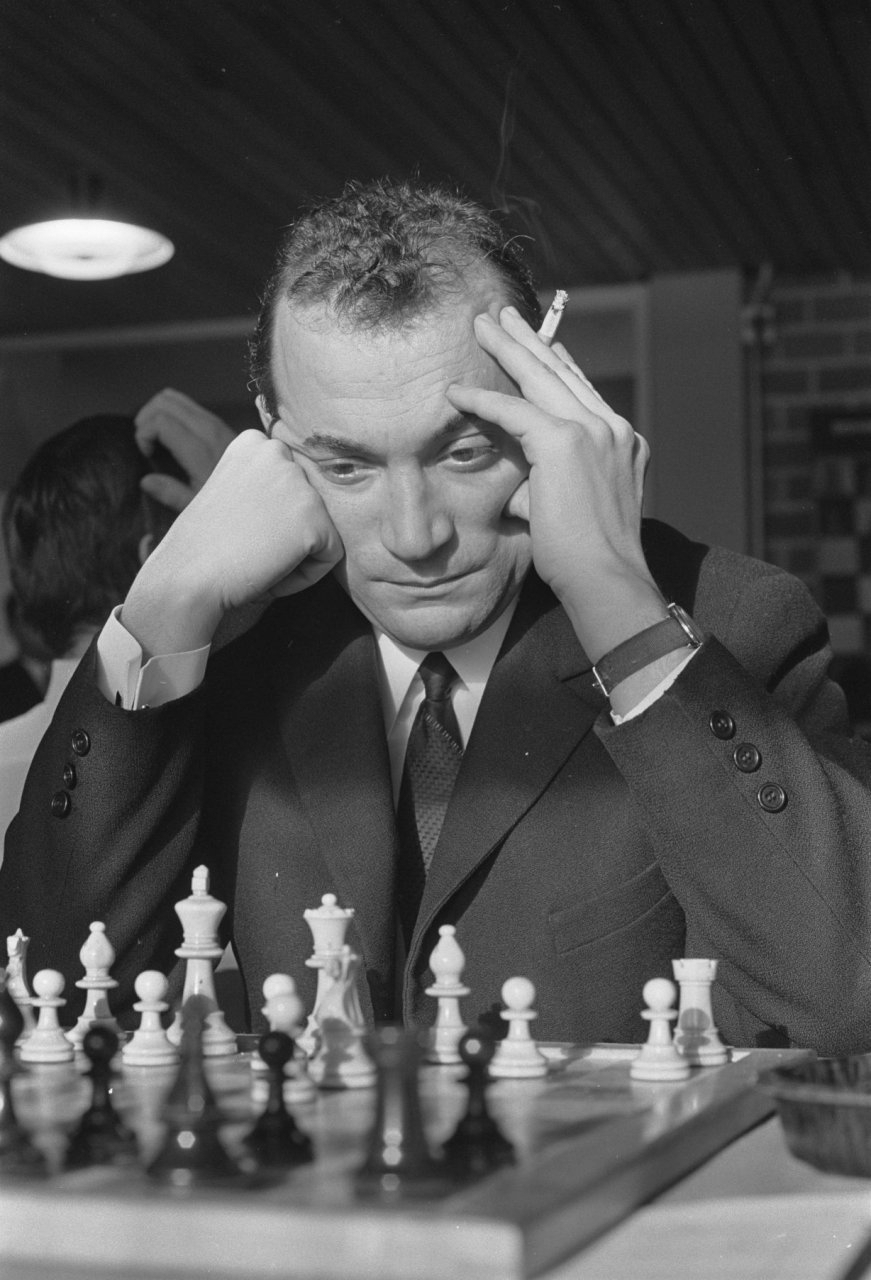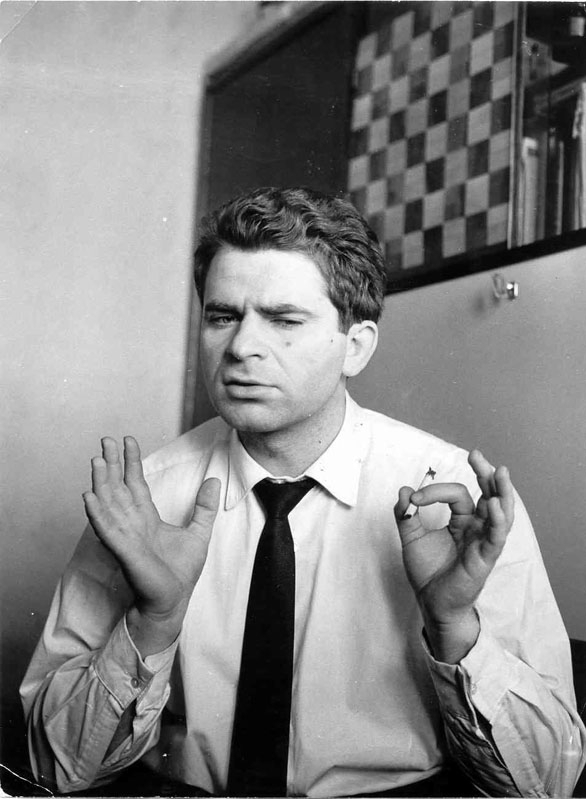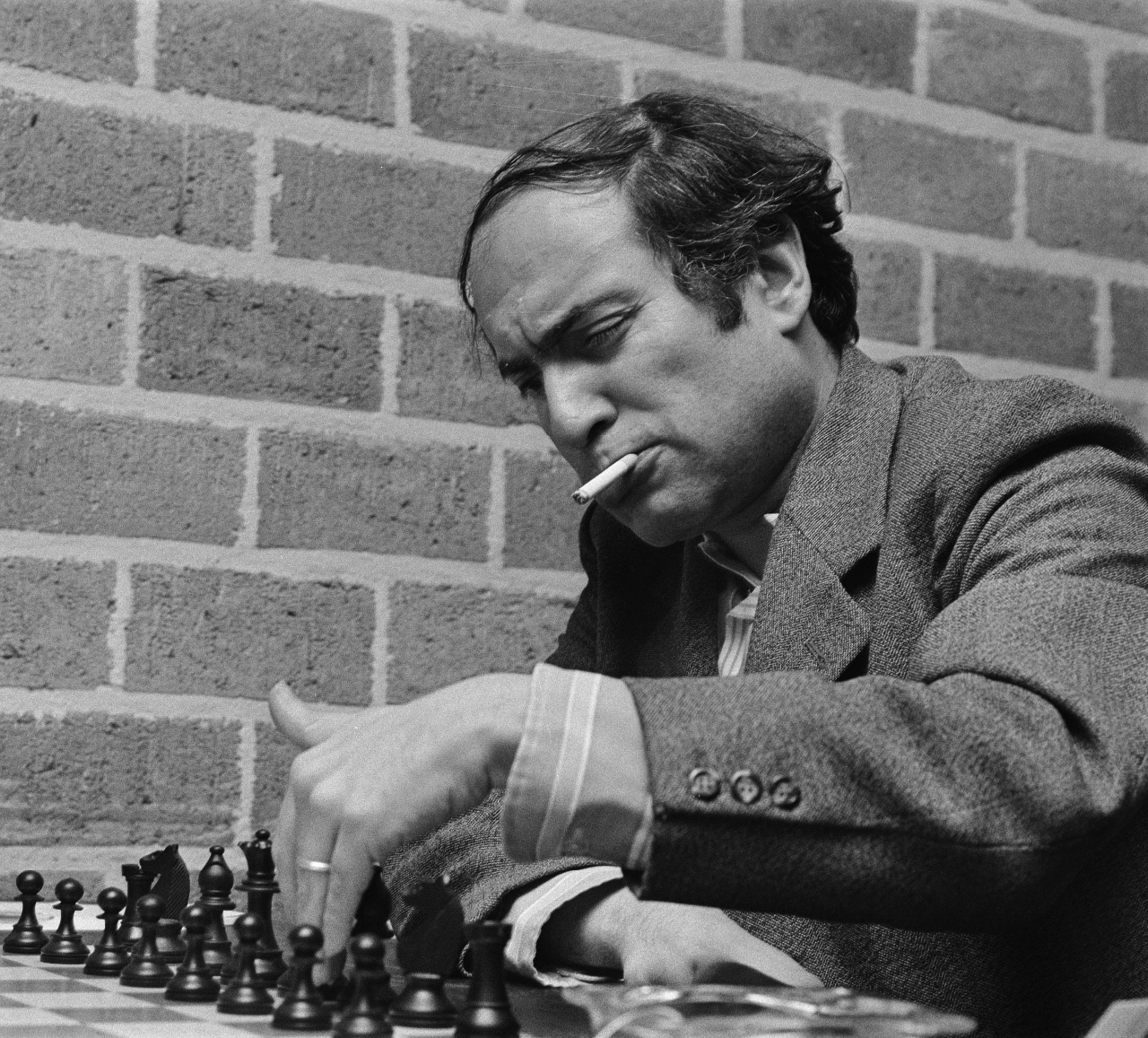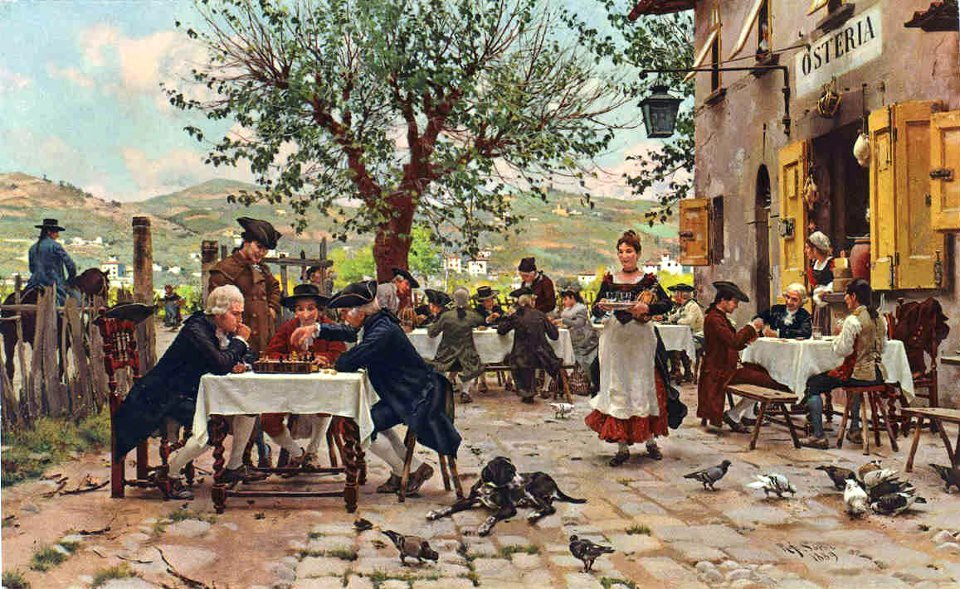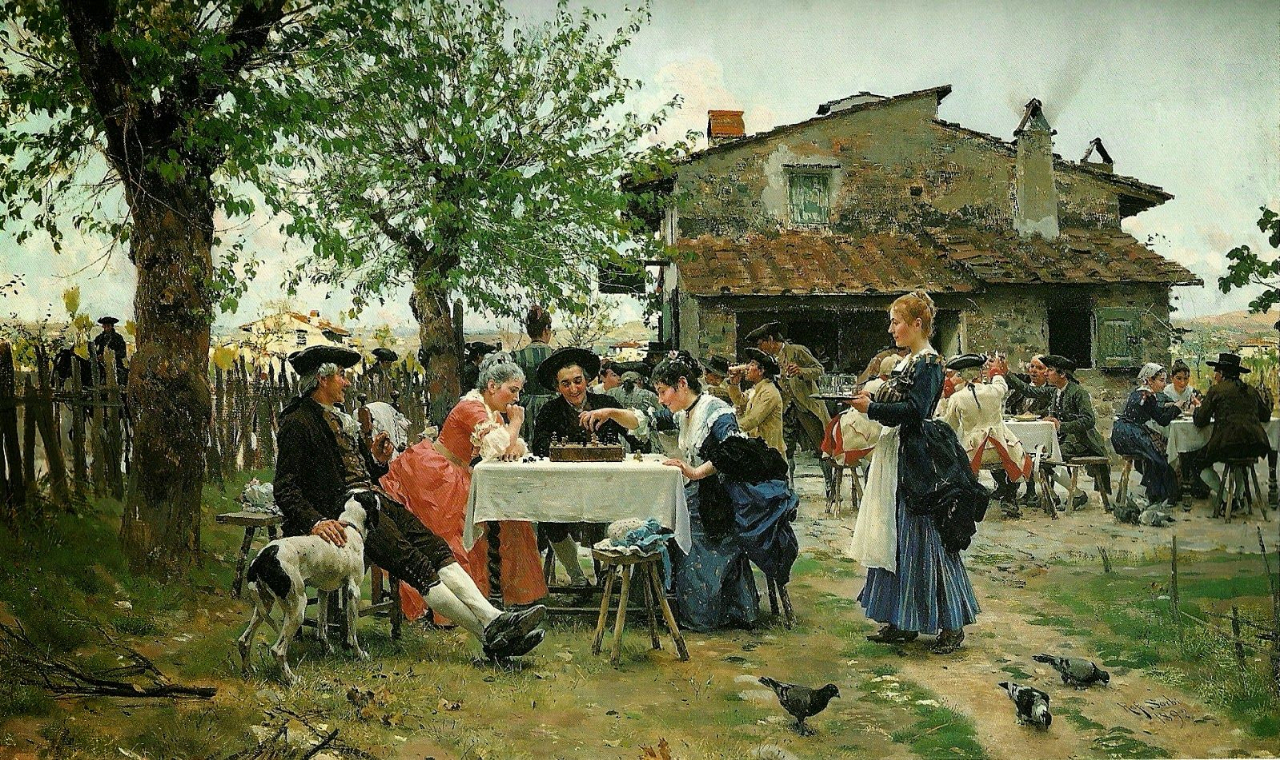La frase famosa de Korchnoi:
"Ningún gran maestro es normal, sólo se diferencian por la gravedad de su locura"
Chess is Life
Chess Café Václavák, Hotel Julis, Prague
Strategy requires thought; tactics require observation - Max Euwe
“You must also have a sense of when to stop” - Garry Kasparov
“When you see a good move, look for a better one”
- Emanuel Lasker
“If a player believes in miracles he can sometimes perform them” - Viktor Korchnoi
“To play a really good chess, you must have vision” - Alexander Alekhine
“The computer has no ego, no fear, no hope, never gets tired”
Viktor Korchnoi
“Having preferences means
having weaknesses”
(Magnus Carlsen)
<< Everything in chess that has been forgotten is new >> Viktor
Korchnoi
“After you reach the top there's only one way you can go” – Boris Spassky
"It is easy to play against the young players, for me they are like an open book." - Tigran Petrosian (... times are changin')
"Chess is life" <Bobby Fischer>
"The only goal in chess is to prove your superiority over the other guy.
I mean, your opponent must be destroyed. Fully destroyed" <Garry Kasparov>
"A surprised opponent is half-beaten" <Garry Kasparov>
"All abvious moves look dubious in analysis after the game" <Viktor Korchnoi>
“If you wait for luck to turn up, life becomes very boring” - Mikhail Tal
"In chess, as in life, a man is his own most dangerous opponent" - Vasily Smyslov
"Some part of a mistake is always correct "
"Im Schach lernt man nur durch Fehler“
(Tartakower)
"Many have become chess masters,
no one has become the master of chess"
(Tarrasch)
There is no beauty without some strangeness -- Edgar Allan Poe 😎
"One bad move nullifies forty good ones"
(Al Horowitz)
"The best move is the one that disturbs the opponent the most!" (anonymous)
"When the chess game is over, the pawn and the king go back to the same box"
(Irish saying
contributed by Etienne Goldstein)
Smoking area
Ilana (Lena) Glaz, winner at Dortmund International Women's Tournament 1982 (Photo: GF Hund, Dortmund 1982)
Ilana Glaz, born 1961, won the Azerbaijani Women's Chess Championship in 1977. She moved to Israel in 1979, and won the Israeli Women's Chess Championship in 1980. Glaz played several times for Israel in the Women's Chess Olympiads between 1980 and 2014.
In 1985, she was awarded the FIDE International Women Master (WIM) title. Also she is FIDE Arbiter (since 2015) and FIDE Trainer (since 2016).
Glaz graduated from Hebrew University of Jerusalem and Jerusalem Academy of Music and Dance. She works as a headmaster and child trainer of Beersheba Chess School.
Everything I need to know to be successful in the game of life I learned from the game of chess:
This idea and resulting conversation are perhaps best explained by enumeration of generic chess playing principals, such as:
- There is a readily discernable cause and effect for everything (i.e. for every move I make)
- I
have limited time to think and make decisions over the board and there are consequences to moving too quickly or too slowly
- Documented, transparent moves speak for themselves and no excuses are relevant
(you cannot deny or debate the facts/moves which speak for themselves)
- The strongest force or approach is not necessarily the most desirable in all situations
- Positioning is everything and positions change constantly
- All action typically emanates from and is connected to the center
- Once the move/decision is made its difficult if not impossible to take it back
- The first mistake made, haven shaken the player, often results in another
-
Winning is not always a matter of having the most material things
- Sometimes the threat itself is actually stronger than its full execution
- Failure/defeat is often quite apparent if not inevitable before the very end
- Even a little, casual ill timed or ill advised mistake can undue vast preparations and seemingly invincible positions
- There is often a better alternative to the very first impression, considering alternatives
- Intuition
is powerful and essential but also develops from principles and experience
- If you play a position poorly several times, you will eventually learn from it
- Preparation and homework usually pay off, all other things being equal
- If you make decisions based on emotions alone, then you are in trouble
- A sound mind and game plan usually exist and propel from within a sound body
- Your pieces have the most power when they work together
(the
king is only great because he has pieces to protect him)
- Just because you play the opening well, there still might be a middle and endgame
- Sometimes the best outcome is a draw, with both sides having made concessions and hoping for
more the next time
- And the impact: It's no fun to win all the time ... low aim is crime, not failure !!
note: There is absolutely nothing ruthless about the game of chess (or others) – it is simply a contest and comparison of wills and ideas, neither good or evil, just the pureness of voluntary competition governed by mutually agreed upon, objective and ultimately fair & equitable rules.
Louis Buccino, https://www.ted.com/
(Saint Petersburg, Florida, United Staates)
Duels of the Mind
Learn to say "chess" in different languages
Afrikaans: skaak
Albanian: shah
Arabic: شطرنج
Armenian: շախմատ
Azerbaijani: şahmat
Basque: xakea
Belarusian: шахматы
Bulgarian: шах
Bengali: দাবা
Bosnian: šah
Catalan: escacs
Cebuano: chess
Chinese: 棋
Croatian: šah
Czech: šachy
Danish: skak
Dutch: schaak
English: chess
Esperanto: chess
Estonian: male
Filipino: chess
Finnish: shakki
French: échecs
Galician: xadrez
Georgian: ჭადრაკი
German: Schach
Greek: σκάκι
Gujarati: ચેસ
Hebrew: שַׁחְמָט
Hindi: शतरंज
Hmong: chess
Hungarian: sakk
Icelandic: skák
Indonesian: catur
Irish: fichille
Italian: scacchi
Japanese: チェス
Javanese: catur
Kazakh: шахмат
Korean: 체스
Lao: chess
Latin: chess
Latvian: šahs
Lithuanian: Šachmatai
Macedonian: шах
Malagasy: chess
Malay: catur
Malayalam: ചെസ്സ്
Maltese: ċess
Maori: Tuhinga
Marathi: बुद्धीबळ
Mongolian: шатар
Nepali: शतरंज
Norwegian: chess
Persian: شطرنج
Polish: szachy
Portuguese: xadrez
Punjabi: ਸ਼ਤਰੰਜ
Romanian: şah
Russian: шахматы
Serbian: шах
Sesotho: chess
Sinhala: චෙස්
Slovak: šach
Slovenian: šah
Somali: shahaadada
Spanish: ajedrez
Sundanese: catur
Swedish: schack
Swahili: chess
Tamil: சதுரங்கம்
Telugu: చెస్ Tajik: шахсе
Thai: หมากรุก
Turkish: satranç
Ukrainian: шахи
Urdu: شطرنج
Uzbek: shaxmat
Vietnamese: cờ vua
Yiddish: שאָך
Yoruba: chess
Zulu: chess
Say "Chess": http://blog.viralchess.com/p/blog-page.html

